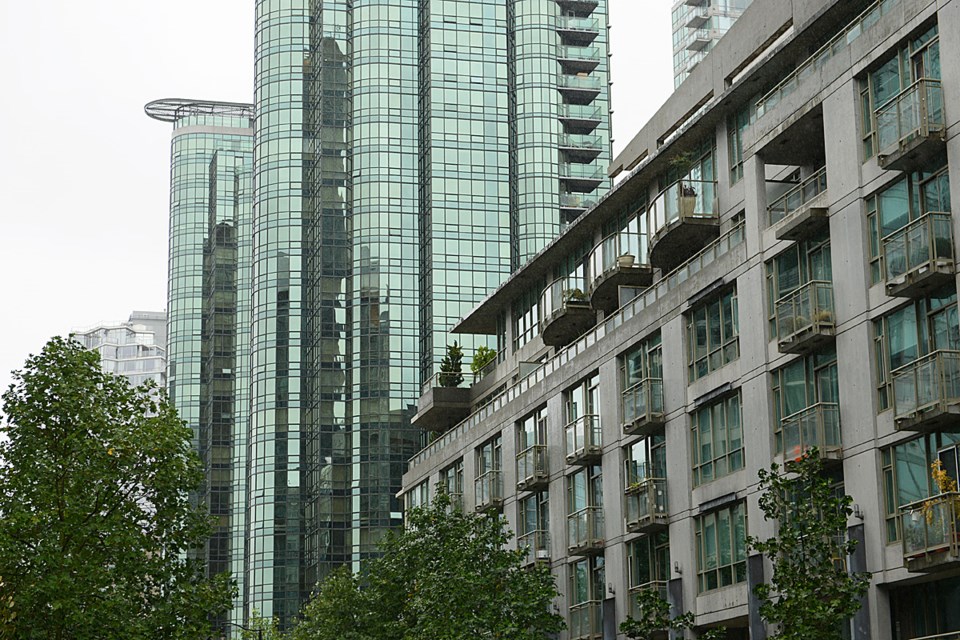This week, Vancouver property owners will start receiving property tax notices in the mail. Most of us will focus on two numbers; the revised assessed value, and the total taxes to be paid.
However, it may be time to take a closer look at how our tax bills are calculated, and consider whether the current taxation system, based on property value assessments, is the best way to determine how much we should pay.
This year, assessed values for single detached properties in Vancouver have increased between 15 per cent and 25 per cent over last year. This does not mean everyone’s taxes will increase by this amount, since the total value of properties has increased.
However, many homeowners and businesses should be prepared to pay more than the 2.3 per cent-approved City of Vancouver tax increase.
I first started to think about property taxation when I discovered the tax bill for my downtown apartment was greater than the tax bill for my house, despite the fact that the apartment was located in a high-density downtown residential complex, and the house was in Southlands, literally at the end of the line.
I again thought about property taxation during a 2007 trip to Vietnam. There I was surprised to find tall, but extremely narrow buildings in and around Hanoi. When I asked my guide why they were designed this way, he responded that it had to do with property taxes.
I subsequently learned that in Hanoi, taxes were not based on assessed property value or the number of windows, as they once were in medieval Europe, but rather on the width of a building.
While these “tube buildings” looked odd, the underlying taxation logic was not. After all, narrow buildings required less road, sidewalks and pipes than wider buildings.
This got me thinking. If we want to be a sustainable city and reward people for consuming less land and infrastructure, perhaps we should reconsider how Vancouver’s property taxes are determined.
After all, why should someone owning a high-density townhouse or apartment pay the same taxes as someone living in a sprawling house in a sprawling subdivision, just because they have the same assessed market value?
If you look at your tax bill, you will find part of the answer. Firstly, a large portion of your taxes pay for schools. In 2015, my provincial school tax was more than a third of the total bill. TransLink received 8 per cent and I also gave money to B.C. Assessment (presumably to determine the value of my property) and Metro Vancouver.
The largest portion of my taxes (45 per cent) went to the City of Vancouver to pay for police, fire fighting, parks and community centres, libraries, bike lanes, roads, water and sewers, and building social housing.
Since roads, water and sewers are only a few of the many services provided by the city, one might argue there is little justification to reduce taxes for multi-family structures. After all, if we are going to look at consumption of services as the basis for taxation, many of us no longer have children in school, yet we pay a lot towards schools.
Moreover, according to the Vancouver Fair Tax Coalition, business owners who cannot even vote, pay more than five times the taxes of residential property owners, for similarly valued properties.
Most of us might be pleased to learn businesses are subsidizing residents. However, when you consider how few additional business licences were approved in the city over a 13-year period (it was 46), you will realize this may not be a good news story. There are many empty storefronts and offices in our city.
This brings me to empty houses.
Last year there was considerable discussion whether property taxation might be used to discourage residential property owners from leaving houses and condominiums vacant. While some questioned the fairness or effectiveness of this idea, noting that empty houses place less demand on city services, others argued it might be a deterrent.
We could go to Israel to find out.
Facing growing concerns about a rental housing crisis, the number of vacant apartments, and budgetary shortfalls, property taxes on vacant suites in Israel are now two times the rate for occupied apartments.
Something else to think about!
michaelarthurgeller@gmail.com
@michaelgeller



